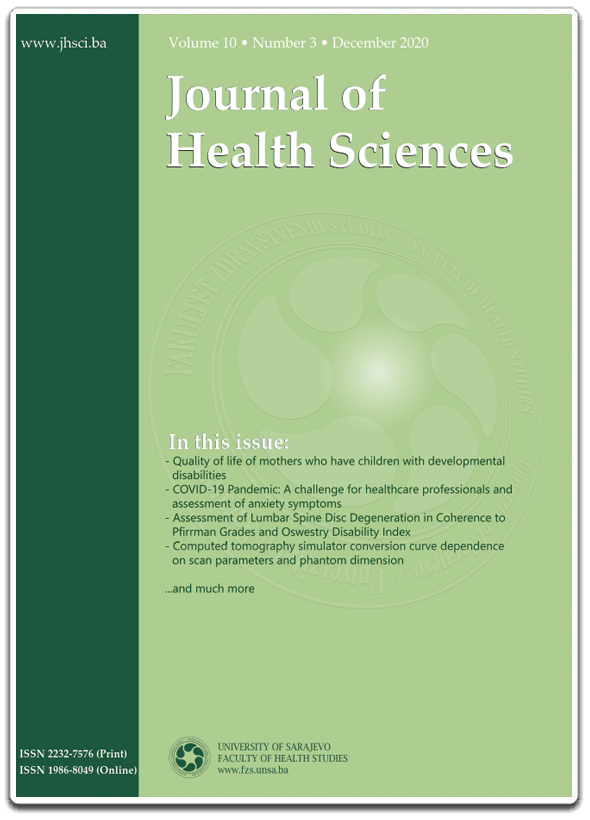Characteristics of Patients Involved in Psychotherapy in Bosnia and Herzegovina
DOI:
https://doi.org/10.17532/jhsci.2014.142Keywords:
psychotherapy, Bosnia and HerzegovinaAbstract
Introduction: The aim of this study was to determine the demographic and clinical characteristics of Bosnian and Herzegovinian patients involved in psychotherapeutic treatments in order to explore the current situation of psychotherapy in Bosnia and Herzegovina.
Methods: The study included 213 patients (154 women and 47 men) undergoing diverse psychotherapeutic treatments. Data about demographic and clinical characteristics were collected by questionnaire. Following characteristics were documented: age, sex, education, employment status, marital status, specific problem that got the client involved in psychotherapy, type of psychotherapy, and use of psychopharmacology.
Results: Majority of the patients undergoing psychotherapy are age up to 40 and female. They are by vast majority holding a university degree and are employed. Nearly equal number of patients is living in partnership or marriage compared to single or never been married. Most frequent reasons for getting involved in the psychotherapy treatment are of the intrapersonal nature (depression, anxiety and panic attacks). Majority of the patients were involved in gestalt and cognitive behavioral psychotherapy, and at the same time majority of those were not prescribed medicaments.
Conclusions: We point out and overview some of the most prominent socio-demographic traits of patients undergoing psychotherapy, the ones that could be important in the future research with the higher degree of control. In the terms of personal initiative, psychotherapy stops being a taboo in Bosnia and Herzegovina. However, there is still a long path until it reaches integration in daily life of the people.










